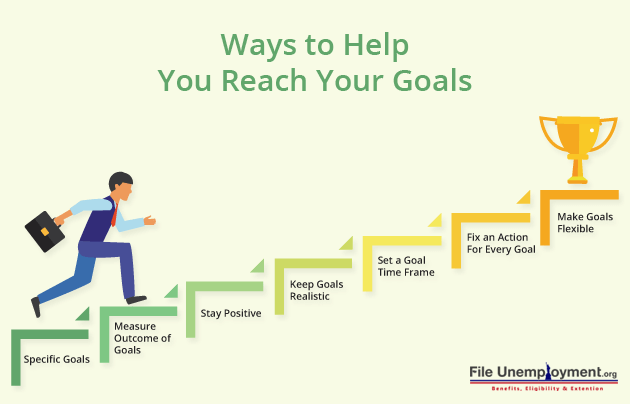The best way to understand yourself personally and professionally is if you review your work and contemplate your job or determine if you need a career change. This is a time to reflect on your past experience and to think about what direction and goals you should work on and determine where you would want to grow in the future.
There are several jobs in the market and plenty of opportunities. You need to shift gears and know that you are not alone in this aspect. Most people change their job 10 to 15 times at most in their work life and this means that you do not have to stay on a particular career path that is not what you favor and right for you. Today, there are several jobs lost to Artificial Intelligence.
Many reasons suggest that this is practical and that you should be thinking about a career path that is straightforward and gives you clarity. In this manner, you should look forward to working hard and enjoying a rewarding career.
Activities to Boost Career Goals
Here are some activities to help you to establish new career goals:
List Your Skills
It’s important to make a list of all your skills and review your work in terms of volunteering, extracurricular and academic and fill these elements with things that you did in your past and what you enjoy and adds a spark of life to your otherwise mundane day.
You should make an inventory of skills that you enjoy working on and list different types of jobs and skills. This way you can develop a preferred set of skills where you can understand what works in your favor in terms of activities and skills that you can utilize in your career.
Participate in Career Research
Read through careers that interest you and review work that you find stimulating by looking through magazines, books, and websites. Make sure that you identify two new careers to research and review every week and keep a diary and makes notes of each type of job.
Look to measure skills in your career and list them based on preference. In this manner, you can field those that have a genuine appeal and compile a list of questions that you should research on and appraise suitably for the career that you opt for.
Review Friends Jobs
Stay curious and learn what your friends work on by looking at their social network information and reviewing online work and publications. Understand the role of teammates, suppliers, clients and whether you are a good fit. Know what workers expect from employers and what you should commit to.
You should spend time on interviewing, asking them about work and brainstorming with them on career options and considering what they do in their particular sector. You should take time to connect with your contacts for possible introductions to people they know and the fields that interest you and how they can get a meeting set up on your behalf.
Engage in a Job Shadow
Learn how to set up a job shadowing approach where the opportunities with contacts in the fields of interest can let you learn about a certain job role. During your vacation time, you can get an exposure to the field and learn about things that you would have to face in a few years and what you would do if you were in his shoes.
Gain Experience With Volunteering
You should find places to look out for volunteering positions in your field. This way, you can help consider social work and help out at a shelter. In time, you can determine if you should stay in school, work out of the home, be unemployed or consider a part-time or full-time job after your internship in that specific field.
Education
You can work on interesting options to further your education. This can be done by boosting your career skills and reviewing offerings of colleges or courses by local community colleges. You can enroll in an adult education center to understand your field of interest.
Also, connect and schedule meetings with different departments to learn about how programs work. You can complete your degree, mid-way in your degree and make this option viable with the right support from your family and loved ones.
Connect With Your College
Visit your alma mater and request for help or get assistance with the career counselor. There are several people that focus on their studies or soul searching but you can actively engage with career resources and working people.
Distinguish Between Short and Long Term Goals
When it comes to defining goals, it can be broadly classified into short and long-term goals. These short-term goals can be accomplished anywhere within six months to three years and long-term goals take three to five years.
There are times that you can reach a short-term goal in less than three months and long terms goals could take more time. But in order to accomplish this long-term goal, you should complete a series of short-term goals.
For instance, it would mean that you should first graduate college then complete an internship and then work on certain certificates. Those could be long-term goals. While short-term goals can be reached based on how you can start working on them like excelling at an exam and completing applications. But, you should know that you can further break down short-term goals further.
Ways to Help You Reach Your Goals
It can be difficult to define your goals and how you would go about achieving them. To make this happen, you should work hard towards making this a massive role in your success. You can do this by formulating your goals and finding what difficulties are there in reaching them. Ensure that you meet these criteria:
1. Specific Goals
Ensure that your goals should be definite and specific in order to be successful. You need to define success and what it means to you and what it takes to reach those goals.
2. Measure Outcome of Goals
Whenever these goals are set, you should always include a time frame needed in achieving these set goals.
3. Stay Positive
Avoid anything that stands in the way of your goals and it should be something that you want.
4. Keep Goals Realistic
Make all long-term goals compatible with your skills and abilities. This means that you should be able to perform and work hard towards achieving it and it should not be superficial.
5. Set a Goal Time Frame
Is your goal reachable within your time frame? You should ascertain not to set yourself up to fail. This means that you should have one big goal and then you should break it down into several smaller short-term goals. Look to better what you do with baby steps instead of going for a giant leap.
6. Fix an Action For Every Goal
You should ensure that you work hard for your goals by honoring it with certain skills. This will take hard work and time and you should do certain actions in order to achieve the desired results.
7. Make Goals Flexible
There are times when you will encounter barriers and this can threaten your progress. You should not give up but instead, you should modify your goals. You should continue working and studying, if needed, to make sure that you reach your desired goal. But, in case you find that it is unimportant then you should pursue other goals and channelize your energy on other objectives.
These tips are sure to help you reach your professional goals and help you make ripples in everything that you work towards. This can help you shape your work and determine if you can set particular goals based on time, flexibility and the type of action required to boost your skills.
These activities and benchmark criteria should help you deliver your career goals. You would have to change your career goals based on the time and other aspects.

